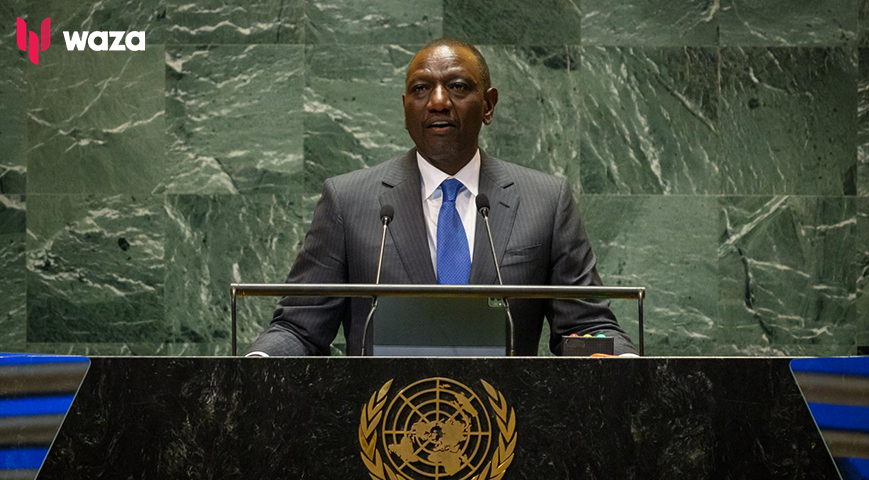President William Ruto has urged for significant reforms within the United Nations Security Council to effectively address the world’s rapidly evolving challenges.
Speaking at the Summit of the Future plenary at the United Nations General Assembly in New York, President Ruto emphasized that the current multilateral system is failing to provide adequate solutions to pressing global issues like climate change, inequality, and debt. He warned that without immediate reforms, humanity could face an unprecedented global crisis.
“We must reject outdated systems and reimagine an international cooperation framework that works for all 8 billion people,” Ruto stated.

Did you read this?
The President stressed the need to overhaul the international financial system, enhance partnerships for shared security, close the digital divide, and invest in human capacity. He also pointed out that only 17% of the United Nations Sustainable Development Goals (SDGs) are on track, mainly due to unmet financial commitments.
“Developing countries, especially in Africa and the Global South, are suffering from severe funding shortages, and the gap continues to grow,” he explained. Ruto called for addressing the historical injustice of Africa’s lack of permanent representation on the UN Security Council as part of ongoing UN reforms.

The President also highlighted Kenya's leadership in the Multinational Support Mission in Haiti, saying that despite limited resources, tangible progress has been made. “What once seemed like an impossible mission is now a real possibility for peace in Haiti,” he added.
Ruto underscored Kenya’s commitment to increasing its forest cover to 30% by 2030 through the planting of 15 billion trees, a youth-led initiative. “Recently, I launched ClimateWorX, a program that will employ 200,000 young Kenyans in ecological restoration and sustainable public works,” he said.
During an interactive session earlier in the summit, President Ruto emphasized the need to tackle structural and monetary challenges that disproportionately impact developing nations and hinder the effectiveness of multilateral financial institutions. These issues include limited fiscal capacity, rising debt, unfair credit ratings, and unequal interest rates, all of which threaten the achievement of SDGs.
“The fourth International Conference on Financing for Development in Spain next year could be our last chance to implement crucial reforms to meet the SDGs,” he concluded.









